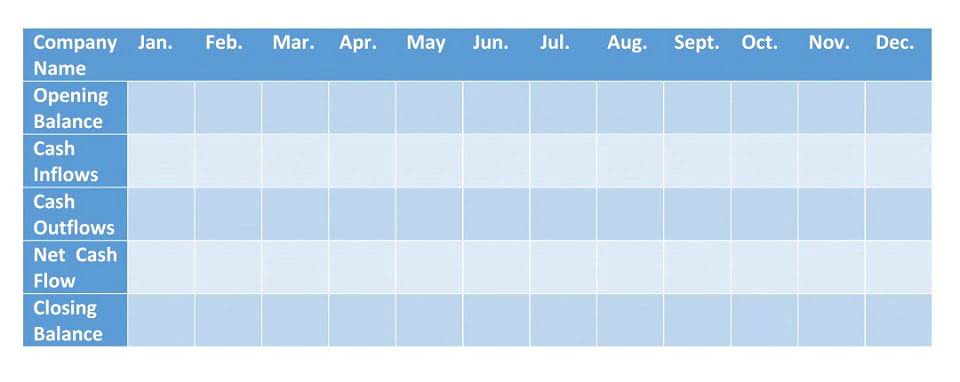
Many factors make it challenging for companies to accurately track and report their financial activity. Now that you know how company accounting is different, let’s get into the nitty-gritty of accounting for contractors. Implementing the right technology can significantly improve your ability to manage your construction firm’s finances effectively. According to the Construction Financial Management Association, pre-tax net profits for contractors and subcontractors are typically between 1.4% and 3.5%. This is why the holding-through-practice fixation on contracts is usually worse than useless.
Why construction bookkeeping matters

Unlike traditional accounting, which may not account for project-based costs, specialized construction accounting focuses on job costing, contract management, and compliance with industry regulations. It involves tracking the cost of labor, materials, and other expenses to ensure that projects run as efficiently and cost-effectively as possible. Construction accounting also involves tracking revenues so that you can accurately measure the profitability of your projects. Retainage is a common practice in the construction industry where a percentage of the contract amount is withheld until the project is completed. Properly accounting for retainage is essential for accurate financial reporting and effective cash flow management. Several dedicated software solutions cater specifically to contractors’ needs, offering features like job-cost tracking and expense management.
Why is construction accounting so hard?
Delayed payments from clients can strain finances, affecting payroll and supplier payments. To manage this, I advise implementing a structured invoicing schedule and closely monitoring accounts receivable. Additionally, categorizing expenses and regularly reviewing them helps identify cost-saving opportunities. Utilizing cash flow management tools can provide insights into current and forecasted financial positions, aiding in proactive decision-making. In conclusion, the importance of specialized construction accounting cannot be overstated. The unique financial challenges and complexities inherent in the construction Online Accounting industry necessitate tailored accounting practices and software solutions.
business
Pramod has over 11 years of experience relating to finance and accounts in diversified industries. He is an expert in resource and process optimization resulting in greater operational efficiencies. The wage rate for a worker in a state or locality is not the same but rather the US Department of Labor and regulatory agencies in each state. The compensation that an employee is supposed to be paid can also be affected by union rates, travel pay, and taxes.
- If you truly want to master your construction accounting and avoid costly mishaps, you may want to look into the best construction accounting software.
- In contrast, traditional accounting typically treats business operations as a whole rather than breaking them down into separate projects.
- This delay can strain financial resources, making it difficult for businesses to meet operational expenses, pay employees, or invest in new projects.
- A construction bookkeeper plays a vital role in managing financial data for construction projects.
- One of the most important aspects of bookkeeping for construction companies is handling payroll.
- It involves tracking and analyzing costs, managing project budgets, monitoring cash flow, and ensuring compliance with industry-specific regulations.
Cloud-based bookkeeping services for small businesses in Canada

The Bookkeeping for Chiropractors first step for all construction firms is to open a separate business bank account that will be used exclusively for your business. One of the most significant challenges in construction is dealing with fluctuating material and labor costs. Market conditions, supply chain disruptions, and seasonal variations can cause unexpected cost increases, making it difficult to stick to budgets.
- Just as you have project managers overseeing each job site, it might make sense to hire a professional accountant to help you reconcile a variety of transactions for various jobs and services.
- If your construction business follows generally accepted accounting principles, you should use the percentage of completion method for financial statements as well.
- Tools like Planyard simplify the process by automating routine tasks, providing real-time financial visibility, and integrating with existing accounting software.
- Managing project-specific accounting involves tracking multiple invoices, payments, and expenses for each project.
The balance sheet shows the company’s assets, liabilities, and equity at a specific point in time. The income statement shows the company’s revenue and expenses over a period of time, and the cash flow statement shows the inflows and outflows of cash during that period. In addition to payroll, construction companies must also manage a wide range of expenses. This includes everything from materials and equipment to subcontractor payments and travel expenses.
Net Income Statement

QuickBooks Desktop Contractor Edition provides robust tools for tracking project expenses and profitability. Buildertrend integrates project management with financial tracking, making it easy to monitor job progress and costs simultaneously. Implementing a systematic bookkeeping process involves choosing the right software, categorizing transactions, and setting up a chart of accounts. Selecting user-friendly accounting software like QuickBooks or Sage simplifies the recording of income and expenses.
Managing Fluctuating Costs
They might also work to develop budgets, provide cost analysis for current and future projects, and create and manage accounts payable and receivable. Tools like Planyard simplify the process by automating routine tasks, providing real-time financial visibility, and integrating with bookkeeping for general contractors existing accounting software. Embrace streamlined bookkeeping practices to improve efficiency and ensure financial success in your construction projects. Without consistent financial reports, it’s challenging to understand project profitability and make informed decisions. Manual reporting methods are time-consuming and prone to errors, resulting in inaccurate data.